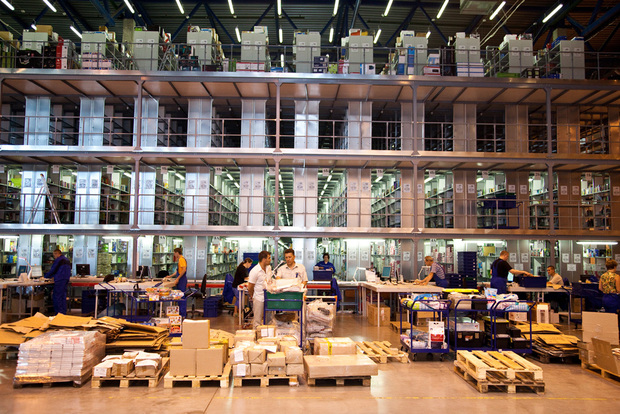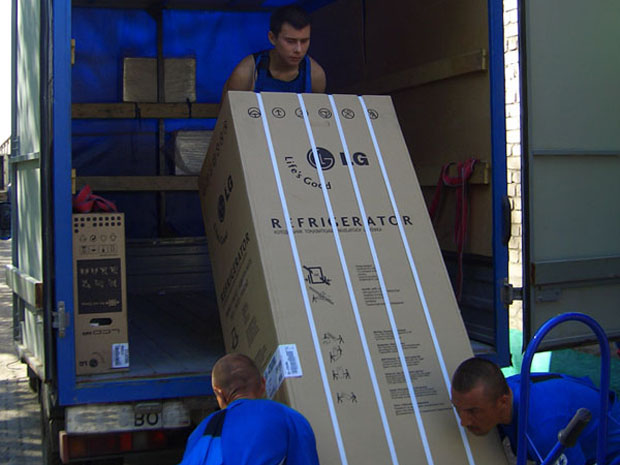Growth and import substitution: e-commerce in Tatarstan developing 3 times faster than in Russia in average
The share of Tatarstan at the beginning of the year accounted for 2% of online sales, major purchases were made in domestic shops
Tatarstan demonstrates super-dynamics in the field of electronic commerce: in the first quarter of 2017 online sales in the region grew three times faster than in the whole Russia, according to the Russian Association of Internet Trade Companies. At the same time, oversaturated market in the central region of the country, on the contrary, slows down. However, Realnoe Vremya experts believe that it is early to talk about consistent patterns yet.
Three times faster than in Russia in average
At the beginning of 2017, e-commerce market in Tatarstan was growing almost three times faster than the average rate in Russia and faster than in the context of the Volga Federal District. It is evidenced by the data provided to Realnoe Vremya by the Russian Association of Internet Trade Companies (AITC). According to the association, in the first quarter, the sales online in the whole country increased to 240 billion rubles, or by 14%. In Tatarstan, over the same period, the market grew by 37% and reached the amount of 4,8 billion rubles. The share of the region in the total volume of online sales thus amounted to 2%.
The rapid growth of e-commerce in the region was recorded by individual market participants. For example, OZON.ru in general is growing by 35% by the results in January-May, but in Kazan the sales increased by 100%, said in the press service of the company. ''In the regions of presence, where we can deliver orders the next day, for example, in Tatarstan and the Urals, the growth is much higher,'' explained the representatives of the retailer. Last autumn, OZON.ru opened in Kazan a warehouse complex worth 100 million rubles. The same one was opened some time earlier in Yekaterinburg, where the sales dynamics now also exceeds the average — 80% in the first five months of 2017.

High dynamics is not the only thing that distinguishes the online retail business in Tatarstan. The second feature is the share of cross-border trade: in the region it was significantly lower than in Russia as a whole. Out of those 4,8 billion that the residents of Tatarstan spent on online purchases, 3,6 billion went into local stores, AITC informed. The cross-border purchases did not exceed 25%. For comparison, across Russia the share of cross-border purchases in January-March exceeded 37%.
Moscow is losing ground
The hegemony of the center of Russia in the structure of e-commerce is slowly eroding, but the activity of regions is growing, concluded AITC. Earlier, the dominance of the centre in the sphere of online sales, which still persists, was supported mainly by Moscow. For example, in 2016, its share accounted for almost 31% of the local market in monetary terms. By the cross-border online purchases, the share of Moscow was even greater — 32%. The second was St. Petersburg and the Leningrad region (10,6% of the local market and 11% of the cross-border market). The shares of other regions were relatively small.
Today by growth rate, the Central District began to lag behind some regions, according to AITC. This is evident, for example, by separate product categories, including in the segment of consumer electronics (household appliances and electronics, its sales accounts for major share). In January-March, online sales of household appliances and electronics in the Central Federal District fell by 5,3%. Now the share of the district accounts for 42,5% of the market. Meanwhile, the regions started to buy online more. The top three most rapidly growing in the segment of household appliances and electronics are the Far Eastern, Siberian and Ural Federal Districts. According to AITC, the volume of online sales in the Siberian Federal District grew by 22,5%, in the Far Eastern Federal District — by 20,4%, and in the Ural Federal District — by 18,4%.

The Volga Federal District is the leader in the general structure of online trade: in the first quarter the growth amounted to 25%, the market volume — 32 billion rubles.
''In general, we can tell that today the regions are growing faster than the CFD, which by the dynamics is even losing its share,'' said Fyodorov. He explains this by the growth of solvency of the population in the regions and also with the glut on the market in the capital of the country. ''The development of the regions is faster than the growth of the Central District, from the point of view of a young market it is a natural process. The delivery of goods is being optimised, online players are entering the regions, while Moscow and St. Petersburg are being saturated. Therefore, according to all laws, the regions should grow faster,'' said the president of AITC.
Are Sochi, Krasnodar, Kazan new economic centres?
The growth of the regions to a large extent is associated with the fact that some of them are clearly relying on the federal centre. ''This is due to the fact that these regions have large volumes of investments (in particular in Sochi, Krasnodar, Kazan). Large local players pay attention to them, due to this there is an increase,'' said Fyodorov.
However, some experts believe that it is too early to call the lag of Moscow a consistent pattern. ''My personal opinion is that this is not a trend,'' says the director of the Center for market research of the HSE Georgy Ostapkovich. ''There are no reasons for Moscow to fail by online trade — neither macroeconomic nor income ones, nor at the level of service. Take into account that the internet commerce is not yet the largest array of trade turnover. When there are small volumes, there is always a big volatility. Today the situation is this, tomorrow it will be different.''